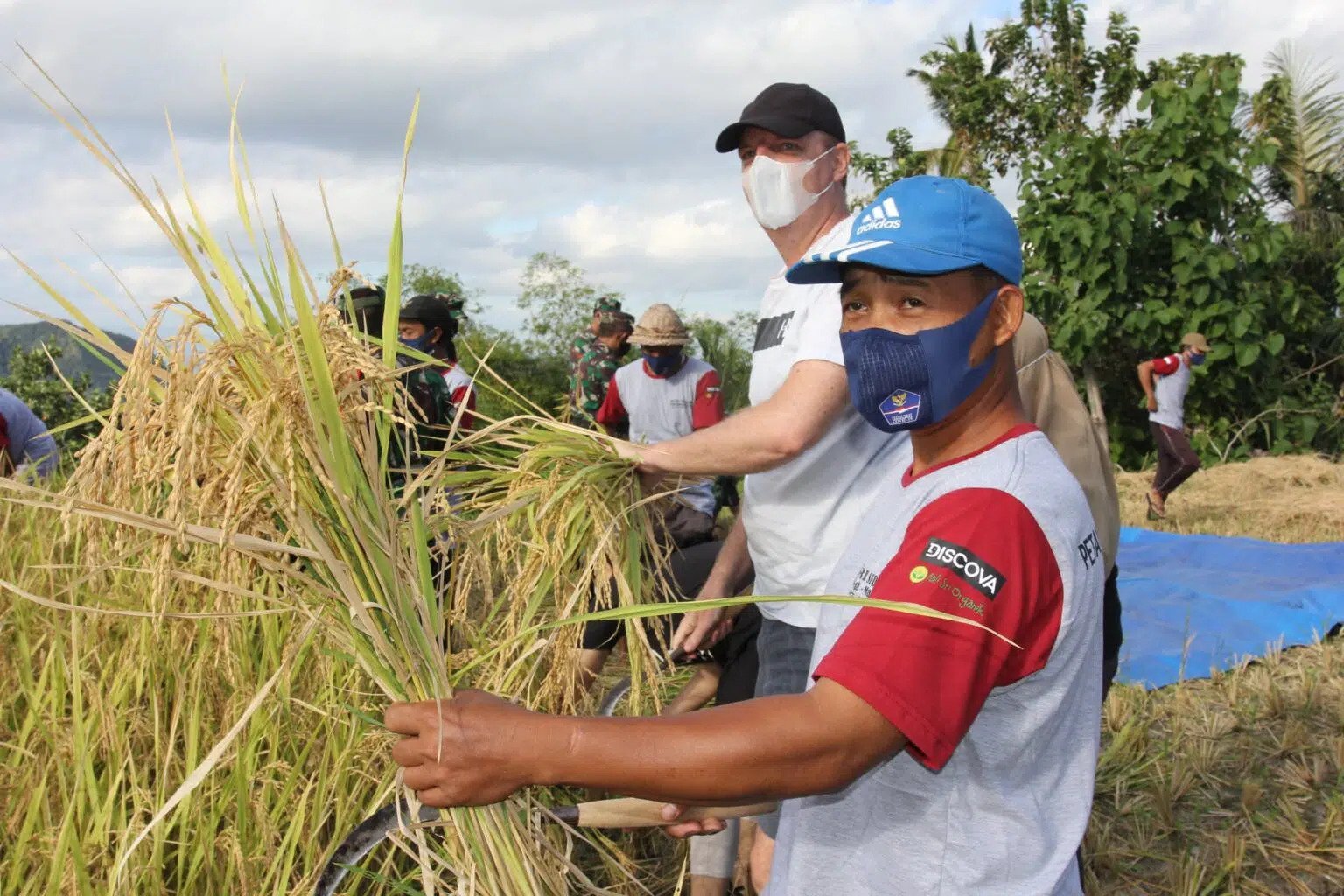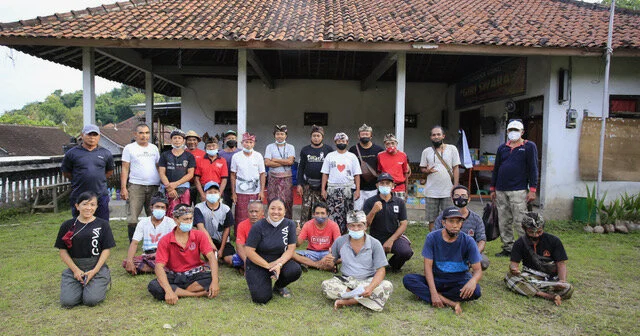SDGs Matter
Highlight your organisation’s initiatives and contribute your views on the UN Sustainable Development Goals (SDGs) through PATA’s online channels
In 2020, we launched the Sustainability Matters Initiative as part of the PATA 2020 vision “Partnerships for Tomorrow” to help attain the UN Sustainable Development Goals. SSR has always been a voice in supporting discussions around sustainability issues ranging from food waste, Global Tourism Plastics Initiative, the future of sustainable tourism and particularly building resiliency to crisis.
Under SDG Matters, we will republish and feature Member articles and news on the PATA blog, weekly PATA newsletter and social media channels. Specifically, these contents are to be related to the SDGs, such as:
Environmental sustainability
Corporate social responsibility
Gender equality
Racial equality
Poverty alleviation
Access to education
The criteria for publication are that the submissions:
promote key issues for the UN Sustainable Development Goals (SDGs)
do not promote a commercial agenda (subject to our discretion)
are authored by a PATA Member organisation or representative
can be content that has already been published elsewhere, ie. your company blog or a news website
While there is no word count or limit, the ideal length would be 600-800 words.
To submit an article, please email SSR@PATA.org
PATA reserves the editorial oversight to suggest edits or make changes as deemed appropriate. Please note that this initiative is exclusive to PATA Members. Learn more about PATA membership.
In 2021, the Centre for Responsible Tourism Singapore launched its podcast on sustainable tourism, to help bring awareness to many contemporary issues in tourism, including community-based tourism and ethics, responsible wildlife tourism, climate adaptation, regenerative travel and many others.
Now, Seoul is actively pursuing the path of sustainable tourism with a focus on both the local residents and the environment. It all begins with “Seoul Sustainable Tourism Conference 2023” on November 16-17, 2023.
This October, chefs from around the world are stirring up more than just culinary delights. As October celebrates two vital occasions; International Chef Day and World Food Day, with chefs embracing sustainable food practices and championing a food waste revolution with the FIT Tech.
One of the guiding principles of Sabre’s ESG strategy is to use the framework of the UNSDGs to highlight the areas that will help deliver the most positive impact and achieve the sustainability goals. This blog maps how travel can play an influential role in catalysing positive global change.
Fully embracing ‘Sustainability’ as one of the four key pillars of Dusit Graciousness, Dusit International has rolled out a new group-wide sustainability initiative, Tree of Life, designed to ensure the company delivers on its promise to always have a positive impact wherever it sets foot.
As an emerging destination, Kiribati recognises that the future of tourism for the small island state must be sustainable and has undertaken initiatives to promote and support sustainable tourism development across the country.
The publication ‘Promoting Gender Mainstreaming: Recommendations for vocational training centers in ASSET-H&C network’ outlines how we can promote and sustain gender equality in the tourism industry, with practical examples that offer applicable and actionable suggestions on gender-mainstreaming.
CHORUS Podcast aims to promote new ideas, values, and best practices in the fields of sustainability in travel and tourism through conversations with opinion leaders who share the same passion. You can find episodes featuring PATA Members here in this blog!
On September 20, 2022, IKEA announced that it has halved its food waste, achieving its ambitious timeline to adhere to and go beyond the UN 2030 Goal. Started in 2017, Winnow and IKEA teamed up to implement the Waste Watcher programme across its stores to tackle food waste through Artificial Intelligence. Over 2021, Winnow and IKEA scaled Winnow's Vision AI to 30 countries, from Japan to Canada. A global movement was built, and we saw food waste reduced on a massive scale.
How can climate adaptation strategies be supported by tourism? Is there actually a close connection between tourism and climate adaptation? Is there a possibility that the pandemic might have, or might be, making climate adaptation in tourism a more plausible idea?
In 2007, the Discova groups began working with communities in the Mai Chau district of northern Vietnam to help locals improve infrastructure, education, water supply for agriculture, and build up community-based tourism in the area. Thanks to the financial support, the hands-on project work and donations help, there is continuous and successful development.
We in tourism should develop a better understanding of the idea of equal sharing of tourism’s benefits, one that looks beyond economic aspects. When that happens, our ability to develop engagement with local communities and other stakeholders will be stronger.
After raising USD $11,593 through Walk for Water campaign, Discova started their work in implementing the Om Goi Water Filtration System for San Mamuang village in Om Goi district that will grant the households access to clean water supply.
To prepare Manggia Villagers for the return of Bali’s tourism, Discova helped transformed some of the infrastructures, delivered training to nurture necessary skills for tourism businesses, and advised investments in the community.
ASSET-H&C has outlined 55 tips and good practices to reduce Tourism’s impact on the environment which can be downloaded from the company’s website. It is also available in Burmese, Khmer, Thai and Vietnamese.
The data from the latest Cornell Hotel Sustainability Benchmarking (CHSB) shows that the average carbon footprint of a hotel stay reduced by 3% between 2018 and 2019. The data on energy, carbon and water has been collected from over 21,000 hotels across 57 destinations.
Royal Mountain Travel launched its "Sustainability Series", a ten-episode video series featuring national and international experts who shed light on pertinent sustainable tourism topics. Stay tuned for the videos coming out every week!
Orangutans have experienced a devastating decline of more than 50% over the last two decades. Their habitat has been seriously threatened by illegal hunting, logging, and deforestation from the palm oil industry. How then, can tourism help save the orangutan?
Mangroves play a key role in the effective operation of land and sea habitat. However, due to the climate challenge, pollution and local threats, they have been halved in the past forty years. Find out how these ecosystems can be protected.
Animal activities and experiences in tourism can pose a significant risk to both the health and safety of people and animals. Businesses operating or selling such activity should therefore make every effort to assess risk and manage it effectively. However, as with most matters concerning animals, there are multiple factors to consider, not least the fact that there are thousands of species, each presenting different issues. Understanding the potential risks and how to mitigate them is crucial.
Doing Masters in Responsible, Sustainable or Transformative Tourism felt a bit waffly, non-academic. Catherine Mack, who is a Masters graduate on Responsible Tourism, has shared thoughts about sustainability in the tourism sector. Why sustainable tourism is important, uses of sustainable tourism and many more ideas have been shared in this article.
Winnow, a tech company that builds AI tools to help chefs run more profitable and sustainable kitchens, found that relative levels of food waste would, on average, rise by 50% during the first month of reopening. Following analysis of kitchens from all over the world, their two-part guides offer insights and practical tips for the hospitality sector to minimize waste as the world reopens.
UNWTO is inviting public and private stakeholders from around the world to take part in a Global Survey of Climate Action in Tourism and help identify frontrunning initiatives and opportunities to accelerate climate action in tourism. Launched on World Environment Day, the survey aims to support the ongoing efforts of the sector to reduce its environmental impacts and carbon emissions, as well as to strengthen its capacity to adapt to a changing climate.
We invite our members to join PATA in being a voice for all manners of sustainability. Send us content related to the SDGs and we’ll feature it on the PATA blog, weekly PATA newsletter and on our social media channels.
Greenview, a leading sustainability consulting and research firm with over a decade of experience working with dozens of hotel companies, has prepared this guidance document to support hotels in their development and implementation of an SMS to support alignment with the GSTC Industry Criteria for Hotels.
Across our planet, our coral reefs face a barrage of threats. From the sweeping impact of climate change to the smaller scale damage caused by localised stressors, like careless diving practices. On top of this, anchoring can cause serious damage to corals and other marine environments like seagrass beds. Even the most careful throw of an anchor can be devastating. In just one instance in Florida in 2019, critically endangered elkhorn corals, that had previously survived Hurricane Irma, were wiped out as a result of a dragged anchor.
This article presents research carried out between December 2020 and March 2021 by the Pacific Asia Travel Association (PATA) and focusright, a Swiss consultancy that works with companies to embed responsible business practices throughout their supply chains. Supported by the Federal Department of Foreign Affairs Switzerland, the project examined the impacts of the COVID-19 pandemic on informal workers in the Thai tourism value chain.
GLP Films (GLP), the content marketing agency dedicated to global sustainable tourism, is pleased to announce the publication of its free industry report: #TourismStrong: Lessons and Solutions for a Sustainable Tourism Future, available to download on their website.
We now know that COVID-19 is an animal-borne disease, its passage to humans eased when nature’s natural barrier has been eroded or removed. WHO estimates these kinds of diseases account for 75% of all newly detected human pathogens over the last 30 years. Disease, and potential pandemics, which could be averted if biodiversity loss is halted and nature’s health restored.
Discova is launching a new farm-to-table project in Bali to provide additional income for local farmers. This directly helps communities impacted by the lack of international tourists resulting from the COVID travel restrictions introduced globally.






























